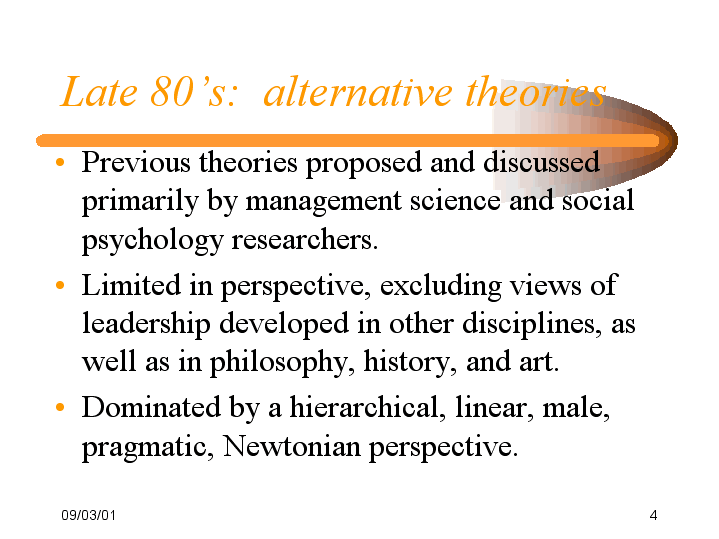Slide 4 of 28
Notes:
Hoskins and Morley (1988, page 91) note the inaccuracy os the psychological/managerial view of leadership: “We take the view that leadership processes represent a special kind of organizing activity, the organizing activity that is political decision making, construed in the widest possible sense…In sum, leadership is an inherently political process.” (Hoskins and Morley, quoted in Rost, page 25)
“Many anthropologists, historians, political scientists, and authors in the popular press conceptualize leadership as a a political process. The consistency with which management and psychological scientists have developed a worldview of leadership devoid of politics shows how narrow their unidisciplinary perspective is and how inaccurate their narrative of leadership theory is.” (Rost, page 25)
The theories presented here have a common structural-functionalist frame of reference grounded in a hierarchical, linear, pragmatic, Newtonian worldview. These leadership theories are also alike in their almost total concentration on the leader, with very little interest in followers. They tend to be pragmatic, goal-achievement oriented; utilitarian and short-term in their ethics; reminiscent of mythic, fairy tale images of what males do as leaders; and rationalistic, technocratic, and quantitative in conceptualization. In short, the psychological/managerial perspective shares the limits and weaknesses of both the industrial paradigm and the rationalistic, Western, reductivist worldview.















